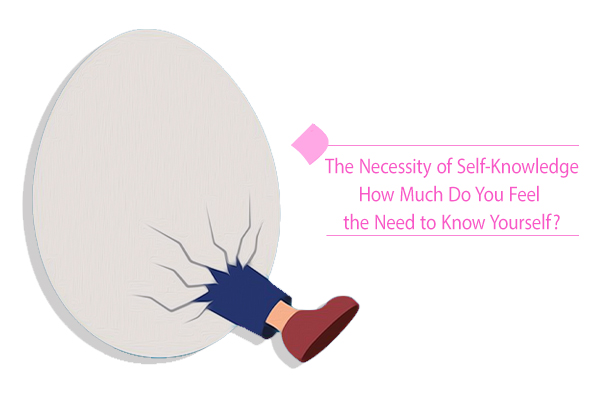Why Should We Know Ourselves? The Necessity of Self-Knowledge in Our Lives
This question might preoccupy our minds and push us to find the right answer. We tend to feel a need to know everything that is in relation to us. For example, not only have we developed a lot of academic fields to discover the laws of nature through science subjects such as chemistry, physics, and biology, but we have also dedicated many academic courses to know other phenomena like water, soil, air, sea, animals, plants, etc. But do we feel the need to know ourselves as well?
Why should we know ourselves? This is a big question whose answer can redefine many of our mental concepts. We study, work, start a family, and build personal and social relationships; therefore, we need to know ourselves before we enter any of these relationships. Is it possible to change our actions and decisions by changing the way we define ourselves? With this in mind, the main questions that we will discuss in this article are:
Why is it important to know ourselves?
How can self-knowledge affect our lives?
Self-Knowledge, an Intrinsic Need
We all like to know our essence. We want to know by whom or what we were created.
- What is the purpose of our creation?
- Why are we here on earth?
- How do we view death?
- What happens after death?
We all have had the natural curiosity to focus on and think about these questions at some point in our lives. But with the passage of time, as we get caught up in the busyness of everyday life and tend to neglect ourselves, it is easy to forget about them. Yet these questions never lose their importance, and they never go away.
How Self-Knowledge Affects our Desires
The important point is that these questions are not like ordinary ones that are present today and disappear tomorrow, but rather they have been around since the beginning of creation and have affected the individual and social aspects of our lifestyles. Their consequential definitions have led to the foundation of many schools of thought. They have even shaped or destroyed human civilizations.
In fact, our desires and demands are dependent on the way we define ourselves. The more inclusive our definition, the greater our desires. In every stage of life, if we just limit ourselves to that stage, we can never achieve long-term goals. For example, a teenager who just thinks about enjoying adolescent pleasures misses some of his opportunities and has a sense of emptiness at the end of this period of his life. Likewise, if we see ourselves as limited to earthly life, our desires and behaviors will be also limited to earthly ones.
Self-Knowledge, the Prerequisite for Other Kinds of Knowledge
The answer that we give to the question, ‘What is a human being?’ determines the kind of joy and sadness we feel throughout our lives; it also lays down our criteria for happiness and what it means to be a good human being.
In general, the answers to these kinds of questions determine our path in life. Our career and marital choice, our behavior towards others, and even our daily activities are dependent on these answers. In fact, true self-knowledge sets the tone for every aspect of our lives.
This is because when we know ourselves, in the face of every choice and relationship, we will see how compatible they are with our ‘self.’ And then we will decide whether to accept or reject them. Therefore, self-knowledge determines the extent of the self’s compatibility and relation with other phenomena.
In other words, self-knowledge is the key to other forms of knowledge. If we do not know ourselves as well as our needs and capabilities in the right way, we cannot truly know other concepts, creatures, and their functions. Obviously, how we see ourselves and how well we know ourselves will change our destiny. This shows the necessity of self-knowledge.
The Role of Self-Knowledge in Satisfying Our Needs
Now let us give an example. Imagine that we forget our physiological functions and needs, and yet at the same time, we are feeling thirsty. Since we do not know our body, we do not know how to deal with this unpleasant feeling.
In this scenario, we may engage in various activities like running in fresh air to feel better, but running for a few hundred kilometers makes us even thirstier. We hope to stay alive until we find out we should eat/drink something to quench this thirst! Now it is time to taste different things around us: Can this white powder quench our thirst? We will try it, but then we will have a strong salty taste in our mouth.
Here, we should first know that we have to drink something in order to stop having this unpleasant feeling, known as thirst. Then we should know that a liquid called water is the only thing which can quench it. In other words, first, we should know our need, and then we should know what satisfies that need.
Now let us see what is meant by the term ‘self’ here.
- Which aspect of our existence is so necessary and crucial to be known?
- What do we mean by self-knowledge?
- Do we mean knowing different parts of the human body like the nervous system or the functions of the brain?
- Are self-knowledge and what we know as psychology the same thing?
In another article, we will explain what self-knowledge is and provide a broader and more practical perspective on the meaning of ‘self’ and ‘self-knowledge.’ We will also discuss the minor effects of self-knowledge on different aspects of our lives.
Please post your comments here and move on to the next article.

